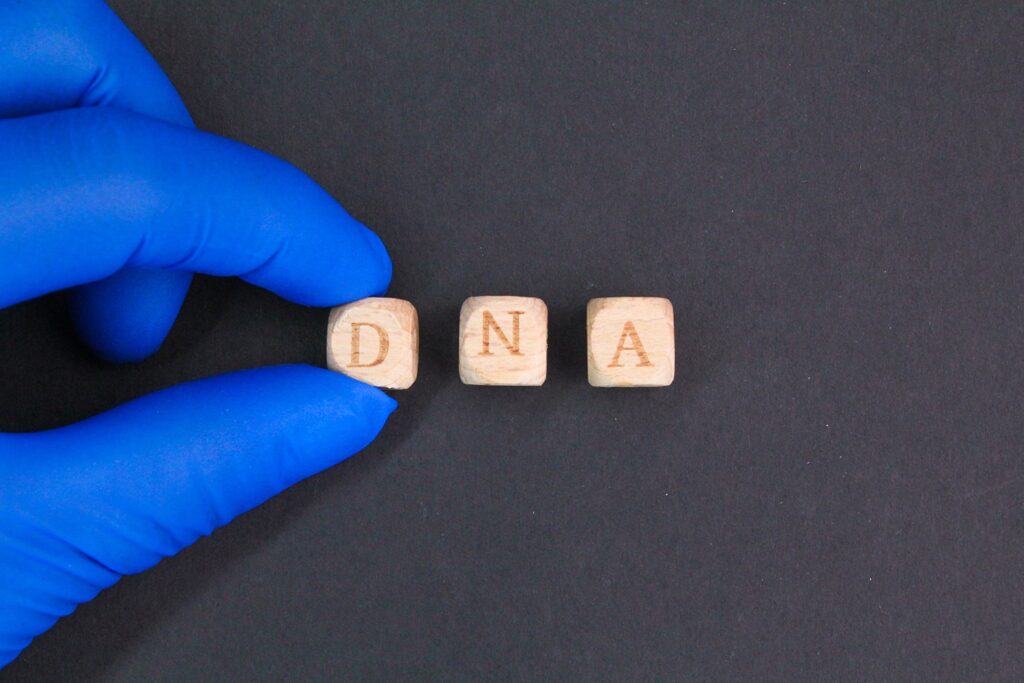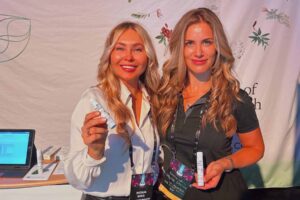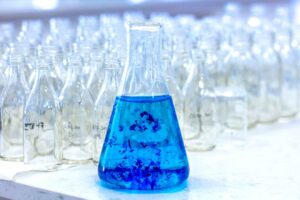You’ve probably heard of ADHD, right? It’s that condition where people often find it hard to sit still, get easily distracted, and sometimes impulsively act without thinking. While many casually use the term, for some it’s a daily reality.
What if I told you that this condition could be influenced by our genes?
That’s right – our DNA. It’s the unique code that makes you, well, YOU! I recently did a DNA test with The DNA Company, and the results were quite enlightening. They told me that I’m genetically more likely to display tendencies associated with ADHD. It’s fascinating how a simple swab can reveal so much about our inherent traits!

What is ADHD Anyway?
ADHD, which stands for Attention Deficit Hyperactivity Disorder, is not just about being hyperactive or easily distracted. It’s a complex condition that can affect one’s ability to focus, control impulses, and even their emotional responses. It can lead to challenges like procrastination, getting easily irritated or frustrated, feelings of burnout, and even anxiety.
It is one of the most common neurodevelopmental disorders of childhood and is usually first diagnosed in childhood, although it can also be diagnosed in adults. Children with ADHD may have trouble paying attention, controlling impulsive behaviors, or being overly active. Adults with ADHD may find it difficult to focus and prioritize, leading to missed deadlines and forgotten meetings or social plans. ADHD can impact the individual in many aspects of their life including academic and professional achievements, interpersonal relationships, and daily functioning.
It’s important to know that ADHD is not just a product of one’s genes. It’s a multifaceted disorder influenced by a blend of genetic and non-genetic factors. This includes lifestyle, nutrition, environment, and more.

What Differentiates ADHD from Attention Deficit Disorder?
Attention Deficit Disorder (ADD) is now considered an outdated term, with ADHD being the preferred terminology in the Diagnostic and Statistical Manual of Mental Disorders. However, ADHD can be categorized into primarily inattentive, primarily hyperactive, or combined types, allowing for a broader spectrum of symptom presentation.
How Do ADHD Symptoms Present in Adults?
Many adults with ADHD may not realize they have the disorder, as its symptoms in adults can often differ from those in children. ADHD symptoms in adults include difficulty concentrating, managing time, setting goals, and maintaining relationships. Furthermore, adults with ADHD may also struggle with mood disorders, anxiety disorders, and other coexisting mental health conditions.
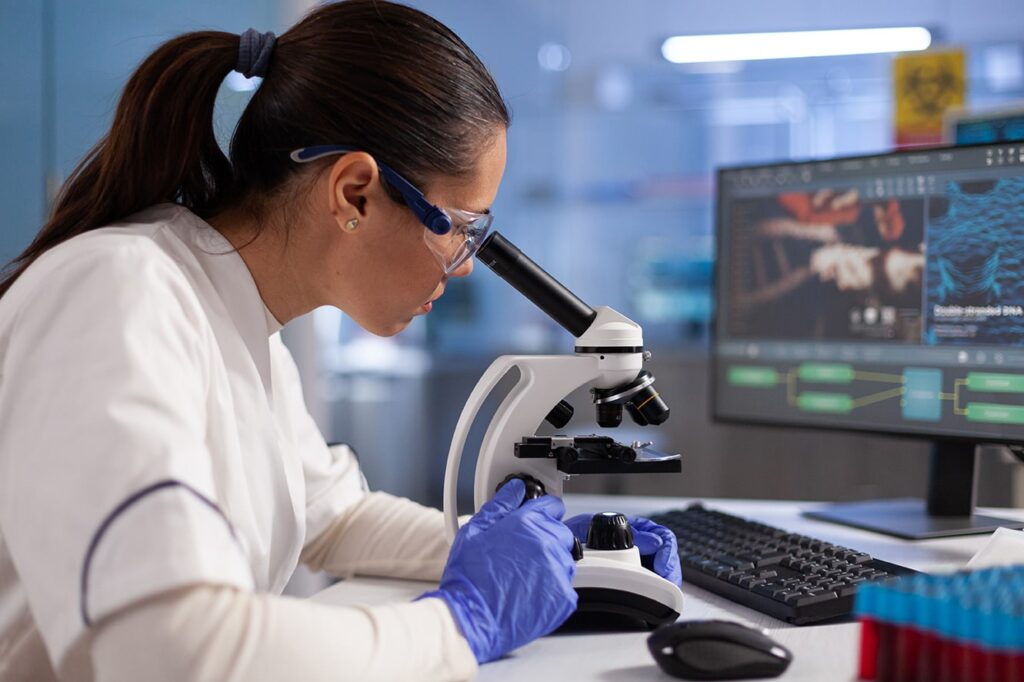
The Genetic Connection
The DNA Company looks into our genetic makeup to uncover potential health risks and susceptibilities. When they told me about my predisposition towards ADHD, it was like they handed me a piece of the puzzle that is ‘me’. Understanding that there’s a genetic element involved provides a clearer perspective on why some might struggle more with distractions or impulsivity.
Our genes, in many ways, serve as a blueprint. They can highlight potential areas of concern, but it’s up to us how we navigate these challenges. For instance, some genes might make us more susceptible to the effects of certain environmental toxins or even dietary deficiencies, indirectly influencing ADHD symptoms.
ADHD and Coexisting Conditions
It’s common for individuals with ADHD to have coexisting mental health disorders. Conditions such as anxiety disorder, mood disorder, conduct disorder, and oppositional defiant disorder often overlap with ADHD symptoms. Recognizing these overlapping symptoms is crucial for accurate diagnosis and treatment.
Lifestyle Adjustments for Managing ADHD
People with ADHD can benefit from certain lifestyle adjustments. Incorporating routines, using organizational tools, practicing mindfulness, and engaging in regular physical activity can significantly aid in managing ADHD symptoms. Moreover, many adults with ADHD find that structured environments and detailed planning tools enhance their productivity and reduce feelings of overwhelm.

Lifestyle, Nutrition, and ADHD
Living with ADHD can often feel like you’re caught in a whirlwind of distractions, impulsive decisions, and bouts of hyperactivity. However, it’s important to remember that while genetics play a role, your lifestyle, nutrition, and environment can significantly influence how ADHD manifests. By making conscious choices in these areas, you can not only manage but thrive despite ADHD. Here’s a deeper look at some strategies:

Eat Right with L-carnitine: The old saying, “You are what you eat,” holds weight, especially when discussing cognitive health. L-carnitine, an amino acid derivative, is crucial for energy production. Foods abundant in L-carnitine, such as cod, whey protein, and ricotta, provide the brain with the energy it requires to function optimally. For ADHD individuals, this means potential improvements in focus and a reduction in brain fog. Thus, incorporating these foods into one’s diet can be a stepping stone towards better cognitive health.
Be a Label Detective: In today’s age of processed foods, it’s essential to be discerning about what we consume. Many staples, including flour, bread, and crackers, contain added folic acid, which isn’t ideal for everyone. Understanding and scrutinizing food labels can pave the way for healthier choices, ensuring that what you consume supports your brain’s needs. Making this effort can lead to both physical and mental benefits, creating an environment in which ADHD symptoms might be better managed.
Rethink Your Morning Ritual with Herbal Teas: Mornings set the tone for the rest of the day. While many reach for a cup of coffee to kickstart the day, those with ADHD might benefit from a gentler awakening. Herbal teas, such as chamomile, rosemary, and lavender, are not just flavorful alternatives to coffee, but they offer calming effects. Chamomile is known for its mild sedative properties, rosemary for boosting memory, and lavender for alleviating anxiety. Starting the day with such teas might lead to improved focus and reduced hyperactivity.
The Power of Mindfulness: Practices like meditation and deep breathing are potent tools in grounding oneself. For ADHD individuals, these exercises are more than just relaxation techniques; they are a means to train the brain. Regular meditation can enhance focus, increase attention span, and provide a serene space amidst the chaos of ADHD. Similarly, deep breathing exercises can act as anchors, especially during overwhelming moments, offering instant calm and clarity.

Embracing a Holistic Approach
While medications have proven to be an effective solution for many dealing with ADHD, it’s worth noting that a more holistic approach might serve as an invaluable alternative or even complement conventional treatments.
A holistic view emphasizes treating the individual as a whole, taking into account the interconnectedness of mind, body, and spirit. For ADHD, this means not just targeting the symptoms, but understanding the root causes, triggers, and individual experiences. It’s about exploring various modalities – from diet to mindfulness practices – and integrating them for a comprehensive care experience.
By embracing a holistic approach, individuals can potentially find more sustainable, long-term strategies that resonate with their personal beliefs and lifestyles, offering a sense of empowerment and ownership over their health journey.

Physical Activity and ADHD
Physical activity is not just about building muscle or shedding pounds; it plays a significant role in cognitive function and emotional well-being. For individuals with ADHD, engaging in regular physical activity can be transformative.
Scientific studies have consistently highlighted the myriad benefits of staying active. For one, it triggers the release of endorphins, our body’s natural mood elevators. These chemicals combat stress, alleviate anxiety, and instill a sense of happiness. For those with ADHD, physical activity can also be a constructive outlet for their boundless energy. It aids in concentration, reduces impulsivity, and can even improve sleep quality.
While high-intensity workouts can be beneficial, it doesn’t always have to be rigorous. Gentle activities like yoga can enhance flexibility and instill a sense of calm. Tai chi, often referred to as “meditation in motion,” can enhance balance and focus. Even a leisurely stroll in nature can be therapeutic, connecting individuals with their surroundings, grounding them, and offering a respite from the chaos of daily life.

The Role of Sleep
The saying “Sleep is the golden chain that ties our health and bodies together” rings especially true for those with ADHD. Sleep isn’t merely a rest phase- it’s when our bodies repair, rejuvenate, and reset. For individuals with ADHD, achieving consistent, quality sleep can sometimes be a challenge. Their minds might race at night, or they might find themselves more alert during the typical sleeping hours.
These erratic sleep patterns, paired with difficulties in achieving deep, restorative sleep, can exacerbate ADHD symptoms. But hope is not lost. With a few adjustments, sleep quality can be significantly enhanced. Try the Oura ring to track your sleep, also creating a consistent sleep routine signals to the body when it’s time to wind down. This includes setting a regular bedtime and wake-up time.
The environment plays a pivotal role too. A dark, cool, and quiet space is conducive to deep sleep. Simple changes, like using blackout curtains or earplugs, can make a difference. Moreover, our habits in the lead-up to bedtime are crucial. The blue light emitted by phones, tablets, and computers can disrupt our circadian rhythms. Therefore, it’s advisable to avoid screens at least an hour before bed. Opt for calming activities like reading a book, listening to soft music, or practicing gentle stretches. By giving sleep the importance it deserves, one can truly harness its healing, restorative powers.

The Gut-Brain Connection
Increasingly, scientists are uncovering the profound connection between our gut and our brain. So intricate is this link that the gut has the title of the “second brain.” Diving deeper into this analogy, one encounters the microbiome—a bustling community of trillions of microbes that inhabit our digestive tract.
These microscopic inhabitants, mostly beneficial, do more than just aid digestion. They have a hand in synthesizing vitamins, bolstering our immune system, and even producing neurotransmitters—chemicals that transmit signals in the brain and play pivotal roles in mood regulation and cognitive function.
The composition of our microbiome can significantly influence brain health. For instance, an imbalance in the gut, termed ‘dysbiosis,’ can lead to a cascade of problems, including mood disturbances, increased anxiety, and cognitive issues, all of which can exacerbate ADHD symptoms.

Therefore, maintaining a healthy gut becomes paramount. Introducing probiotics, either through supplements or fermented foods like yogurt, kefir, or sauerkraut, can help in restoring a balanced microbial community. A diverse, balanced diet rich in fibers, whole grains, lean proteins, and plenty of vegetables ensures that the microbiome receives adequate nourishment.
Moreover, hydration is key. Drinking sufficient water not only facilitates digestion but also ensures a conducive environment for these microbes to thrive. By prioritizing gut health, we can indirectly foster better brain function, offering a promising avenue for managing and potentially alleviating some ADHD symptoms.
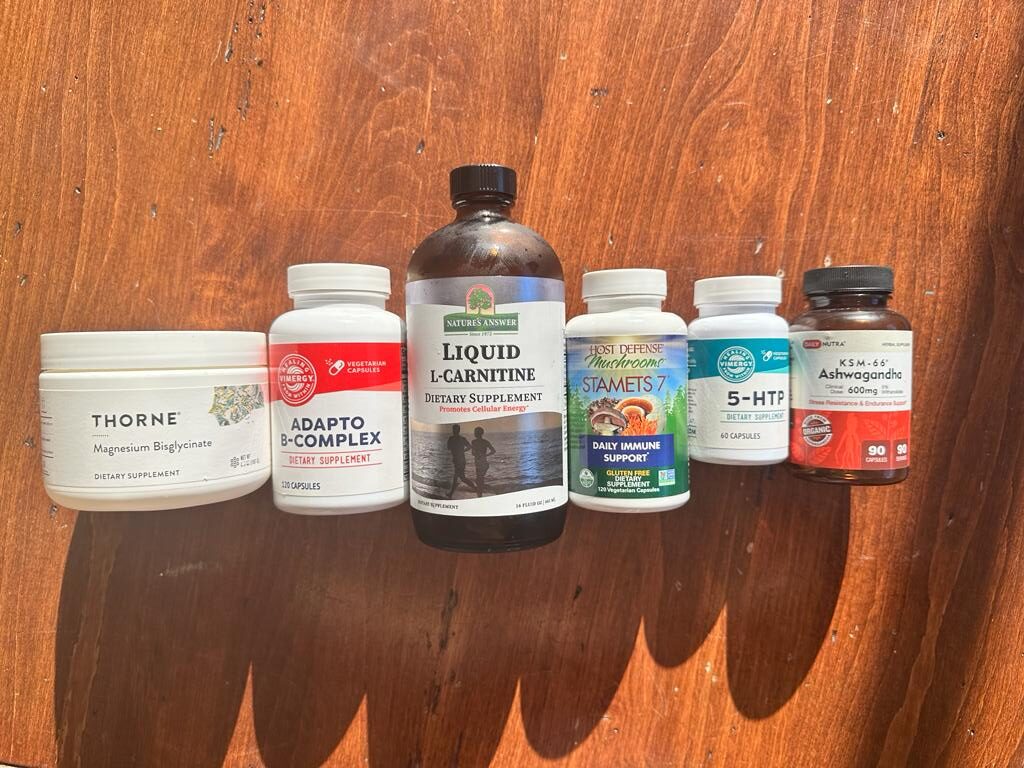
Supplementing Right for ADHD
ADHD, while predominantly a neurological condition, can be influenced by a range of factors, including nutritional imbalances. A well-rounded diet is paramount for optimal brain function, but sometimes, even with our best efforts, there might be gaps that need filling. This is where the right supplements, based on individual needs, can play a crucial role.
Magnesium Bisglycinate: Magnesium is a vital mineral, playing a role in over 300 enzymatic reactions in the body. Magnesium Bisglycinate, a highly bioavailable form of magnesium, stands out for its calming properties. For someone with ADHD, it can potentially temper hyperactivity, reduce irritability, and sharpen attention span. Furthermore, a deficiency in magnesium has been linked to increased anxiety, making this supplement vital for overall mental well-being.
Vitamin B-12: This water-soluble vitamin is a powerhouse. It’s essential for maintaining the health of nerve cells, aiding in DNA production, and collaborating with other B vitamins to form red blood cells. It’s crucial for brain health, cognitive function, and energy production. A deficiency can lead to fatigue and cognitive impairments, which can further amplify ADHD symptoms.
Deep Calm Optimizer: While the exact ingredients can vary, calming optimizers often contain a blend of herbs and nutrients that promote relaxation.
L-Theanine: A unique amino acid predominantly found in green tea leaves, L-Theanine is renowned for its ability to bolster brain function. It can increase alpha brain wave activity, promoting alert relaxation. This state is akin to the feeling one gets during deep meditation—alert yet profoundly relaxed. For ADHD individuals, this means better focus without the jitters that stimulants might induce.
Ashwagandha, Rhodiola, & Reishi Mushroom Extract: These aren’t just exotic names but powerful adaptogens. Adaptogens are a category of herbs and mushrooms known to enhance the body’s resilience to both mental and physical stressors. They strike a balance, neither over-stimulating nor sedating, but modulating the body’s stress response. For ADHD, this can mean better stress management, enhanced focus, and reduced mental fatigue.
5-HTP: 5-Hydroxytryptophan (5-HTP) is a precursor to serotonin, a neurotransmitter instrumental in mood regulation, sleep, and appetite control. Supplementing with 5-HTP can potentially elevate serotonin levels, offering mood stabilization, which is especially beneficial if ADHD is accompanied by mood fluctuations or depression.
Acetyl-L-Carnitine: A derivative of the amino acid L-carnitine, this compound is naturally produced in the body. It’s known to aid mitochondrial function in nerve cells, offering cognitive protection. For those with ADHD, Acetyl-L-Carnitine can enhance attention span, memory, and overall brain health.
Incorporating these supplements, tailored to individual needs and in consultation with a healthcare professional, can pave the way for a holistic approach to managing ADHD. It’s not just about symptom management, but about harnessing the full potential of the mind.
Remember, before starting any new supplement regimen, always consult with a healthcare professional.

The Psychological Aspect of ADHD
While we’ve discussed the biological factors contributing to ADHD, the psychological impacts are equally significant. ADHD isn’t just about being distracted; it’s about dealing with the emotional repercussions of those distractions. The cycle of trying to focus, getting distracted, and then feeling bad about being distracted can be mentally exhausting.
Regular counseling or therapy sessions can help individuals with ADHD develop coping mechanisms. These strategies can make daily tasks less daunting and more manageable. Techniques like cognitive-behavioral therapy can be particularly effective.

Coaching Sessions
I am currently offering one-on-one coaching sessions to help individuals who may be facing challenges in achieving their goals independently. My goal as a coach is to guide and support you in every step of your journey, while also holding you accountable for the actions you take towards achieving your desired outcomes.
Whether you want to improve your health and wellness, establish better habits, or achieve personal and professional growth, I can provide you with personalized attention, a customized approach that suits your unique needs, and the necessary tools and motivation to help you reach your full potential and transform your life.

Conclusion
Having ADHD, or tendencies associated with it, isn’t a label or a limitation. It’s simply a part of the intricate web that makes us who we are. Genes play a part, sure, but with the right knowledge, nutrition, supplementation, and lifestyle choices, we have the power to manage and even thrive with ADHD. The journey starts with understanding our DNA, our bodies, and the multitude of ways we can support ourselves.
FAQ
ADHD, or Attention Deficit Hyperactivity Disorder, is a neurodevelopmental disorder characterized by challenges in attention regulation, hyperactivity, and impulsive behavior.
No, hyperactivity in ADHD is more than just restlessness. It signifies an internal urge to constantly move or do something, making it difficult for the individual to remain still or attentive.
Attention deficit, a core component of ADHD, affects various life aspects, from academic performance to interpersonal relationships, due to challenges in maintaining focus.
While ADHD is prevalent in children and adolescents, it can persist into adulthood. Many adults with ADHD remain undiagnosed and face challenges in organization, emotional regulation, and time management.
ADHD in adults is frequently overlooked because its symptoms can overlap with other conditions, like personality disorders, or be mistaken as mere personality quirks.
ADHD's causes are multifaceted, encompassing genetics, environmental factors, prenatal exposures, and in some cases, brain injuries.
ADHD is managed using a combination of behavioral therapy, medications, and lifestyle adjustments. The treatment approach can differ for children, adolescents, and adults.
Knowledge empowers not only the individual with ADHD but also their support system. It helps in better management and understanding of the disorder.

With a positive approach and a motivation mindset, you will reach your health goals, no matter how hard they may seem at first. Learn more about my one-on-one coaching program here.

